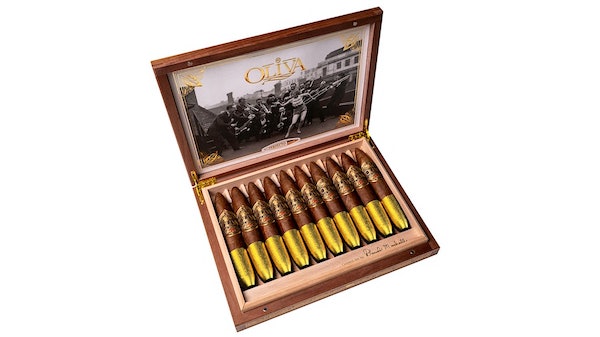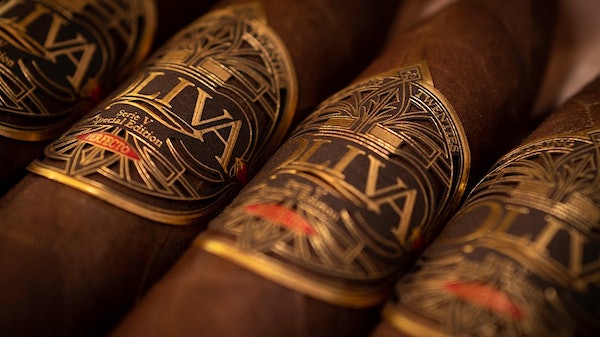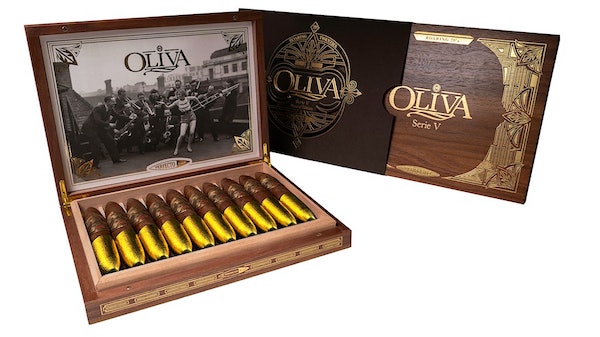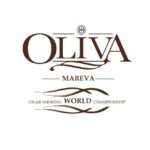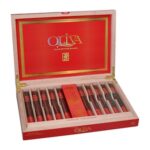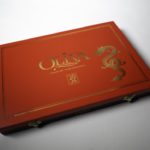Oliva’s most expensive cigar comes gilded in real gold foil that you can smoke.
The Roaring ’20s were the exuberant, energetic and optimistic years that followed World War I.
People danced, smoked and celebrated as economies boomed, particularly in the United States, although it also coincided with America’s failed experiment of alcohol Prohibition.
A century (or so) later and Oliva Cigar Co. is releasing a cigar named for those heady times, and the smokes are adorned with gold.
In a nod to the free-spending days of the 1920s, the cigar will have a suggested retail price of $300 each, making it one of the more expensive smokes on the market and the priciest Oliva cigar to date.
The Oliva Serie V Roaring Twenties Super Limited Edition is a portly perfecto measuring 6 inches long by 60 ring gauge. Produced in Nicaragua, the cigars are made entirely of Nicaraguan tobacco save for the wrapper, which is from Ecuador.
They come in striking boxes of 10, and production will be limited to 300 boxes, 200 allocated for the United States.
The calling card of these extra-expensive cigars is the bottom half of the perfecto, which looks as if it’s wrapped in a sheet of gold foil paper.
But the golden half of the cigar is not merely a paper wrap—it’s real gold, meant to be smoked with the cigar itself. The gilded shroud, as Oliva calls it, was made in partnership with humidor maker Daniel Marshall, who created his own golden cigar years ago.
The bottom half of the Oliva perfecto is coated with Florentine gold foil. (The top photo shows Marshall’s signature on the inside of the box).
“We’re so excited to present this cigar to the world. The idea was born before a worldwide pandemic took people’s freedoms away,” says Frederik Vandermarliere, owner of Oliva.
“The freedom to enjoy, share special moments and express oneself. All the more reason, seen in hindsight, why this cigar is an ode to liberty, to the power of vitality and of embracing life, especially in pivotal times.”
The cigars will be on display at next month’s PCA trade show in Las Vegas. A portion of the sales will be donated to the Oliva Helping Hands Foundation, which helps Nicaraguan women working in the cigar industry with childcare.
This article was published on CigarAficionado.com

